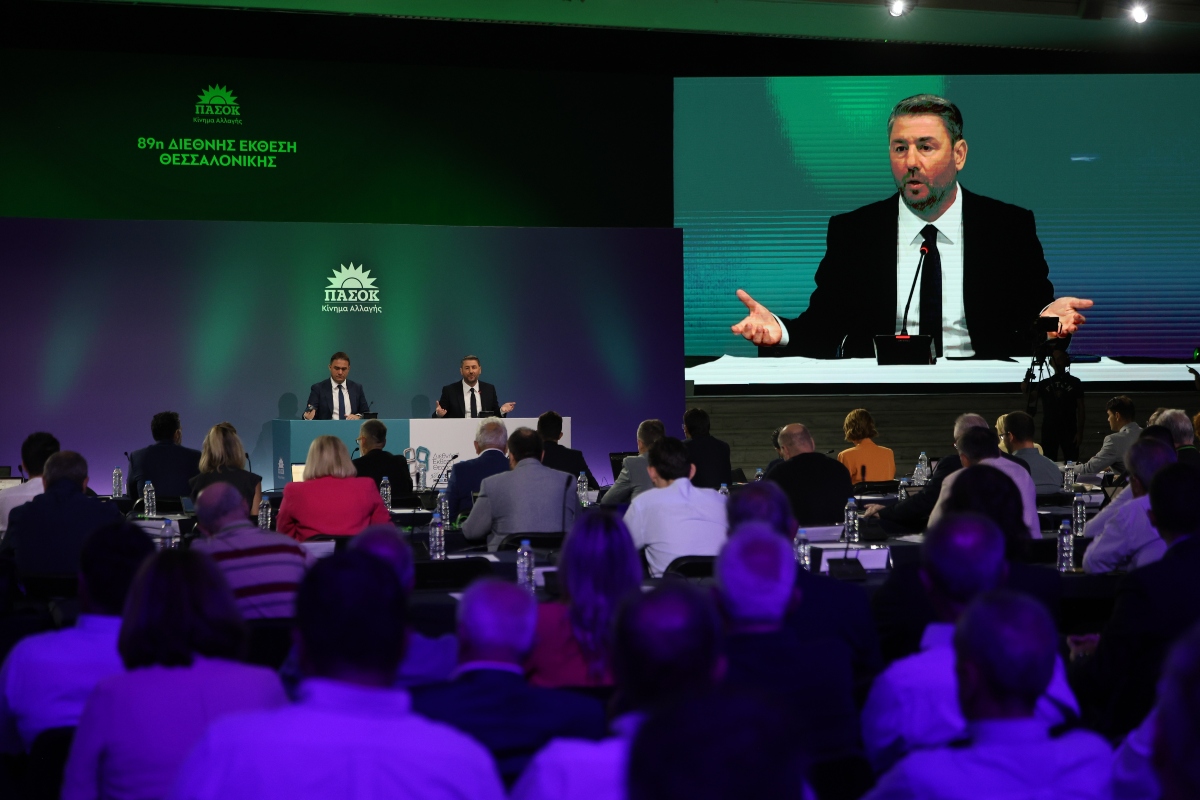In a sharp address at the 89th Thessaloniki International Fair, Nikos Androulakis, leader of PASOK‑Movement for Change and head of the opposition, launched a fierce critique of Prime Minister Kyriakos Mitsotakis, charging that the government’s foreign policy is guided by fear rather than strategic vision. Centering his remarks on Greece’s relations with Turkey and Israel, Androulakis argued that the country is becoming isolated on the international stage.
“Strategic relations do not mean complicity,” he declared, insisting Greece cannot stand by passively, especially when foreign policy decisions risk compromising both principle and reputation.
Key Criticisms and Proposals
- Against Aligning Fully with Israel: Androulakis said that while maintaining strategic relations is important, these should never equate to unquestioning support or complicity. He pushed for balance, anchored in international law, peace, and stability.
- Turkey and European Defence: He demanded that Turkey not be allowed to participate in European defence structures, suggesting that such inclusion would undermine Greece’s security interests and diminish the credibility of European defence.
- Supporting the Recognition of a Palestinian State: As part of a more even‑handed foreign policy, Androulakis called for Greece to recognize Palestinian statehood, emphasizing that moral principle must guide diplomatic relations—not just geopolitical convenience.
Broader Vision and Reform Agenda
Alongside his criticisms, Androulakis unveiled a comprehensive ten‑year vision for the country under what he calls the New European Convergence, built on several pillars:
- Demographic Renewal to stabilize population and redistribute growth more evenly across regions.
- Boosting Productivity, aiming for Greek labour productivity to reach 75% of the European average over a decade (from its current ~56%).
- Raising the Standard of Living, targeting 80% of the EU’s average in the same timeframe.
- Reducing Inequality, cutting poverty by 6 percentage points in five years.
- Decent Work and Fair Distribution of Wealth, including annual increases in wage share in GDP.
He complemented this with institutional reforms: a revamped civil service with merit-based hiring (new ASEP), digitalisation of service delivery, a new leadership selection process for the judiciary, enhanced transparency via a unified digital platform, and stricter controls on political funding.
The Stakes and Challenges
Androulakis framed his proposals as essential not just politically, but existentially:
- He warned of a country exposed internationally by scandals and loss of credibility.
- He argued that a foreign policy rooted in fear diminishes national agency and weakens Greece’s position among its partners.
- He emphasized the need for Greece to present itself as a confident actor that upholds international law rather than deferring to powerful states.
Challenges to this path include the diplomatic balancing act between Israel, Palestine, and regional powers like Turkey, as well as ensuring consistency between rhetoric and action.
Source: pagenews.gr
